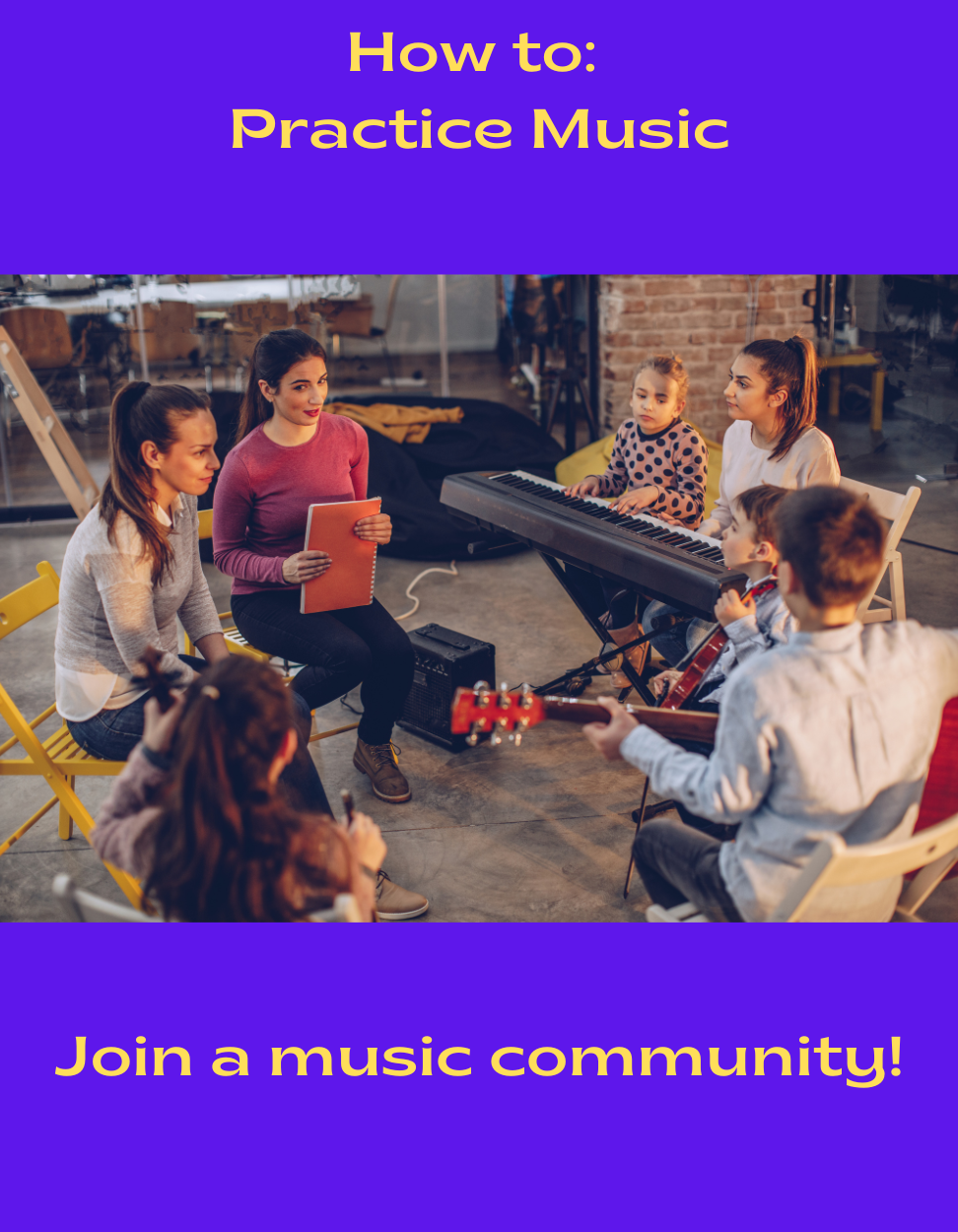- Home
- Classical Fingerstyle Portal
- 15 Actionable Guitar Lessons
- Classical Guitar Technique
- Guitar Lessons
- Beginner Lessons
- Guitar History
- The Renaissance Guitar
- Guitar Time Line
- Classical Guitar Blog
- Contact
- About Author
- Site Search
- Privacy Policy
- Site Map
- Classical Guitar Study Course 3.0
- Instant Classical Guitar Repertoire
- Classical Guitar Lessons For Beginners
How to Practice Music - Your Tips for Success!
"How to Practice Music?" This question often preoccupies aspiring musicians who are pursuing excellence in their musical journey.
The ultimate goal of every musician, whether a seasoned professional or an absolute beginner, is to better one's craft and connect deeper with the music. In this article, I intend to illuminate some music practice strategies and help design a music practice routine that fosters progress, efficiency, and passion.
I remember when I first started learning the classical guitar in my early twenties. I just knew I needed a practice routine that would be both efficient and effective if I were able to reach my goal, as I was starting to learn my instrument relatively late in life. There wasn't a moment to waste as I went about developing my technique and skills through an organised and enjoyable routine.
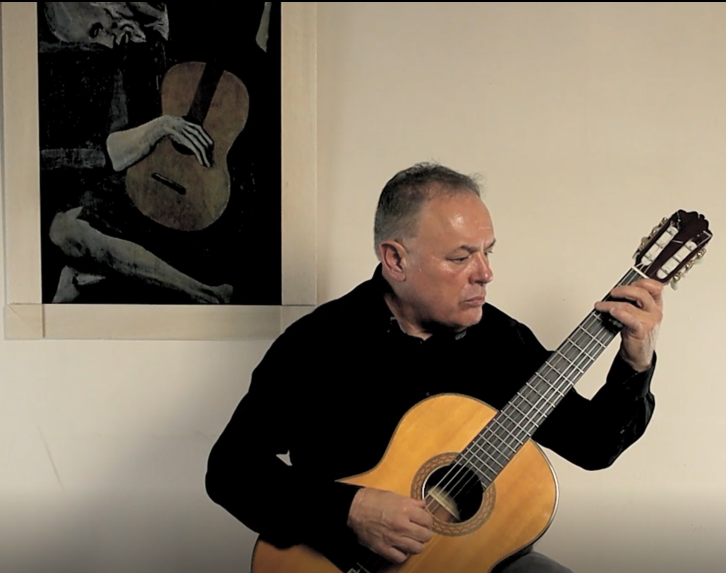
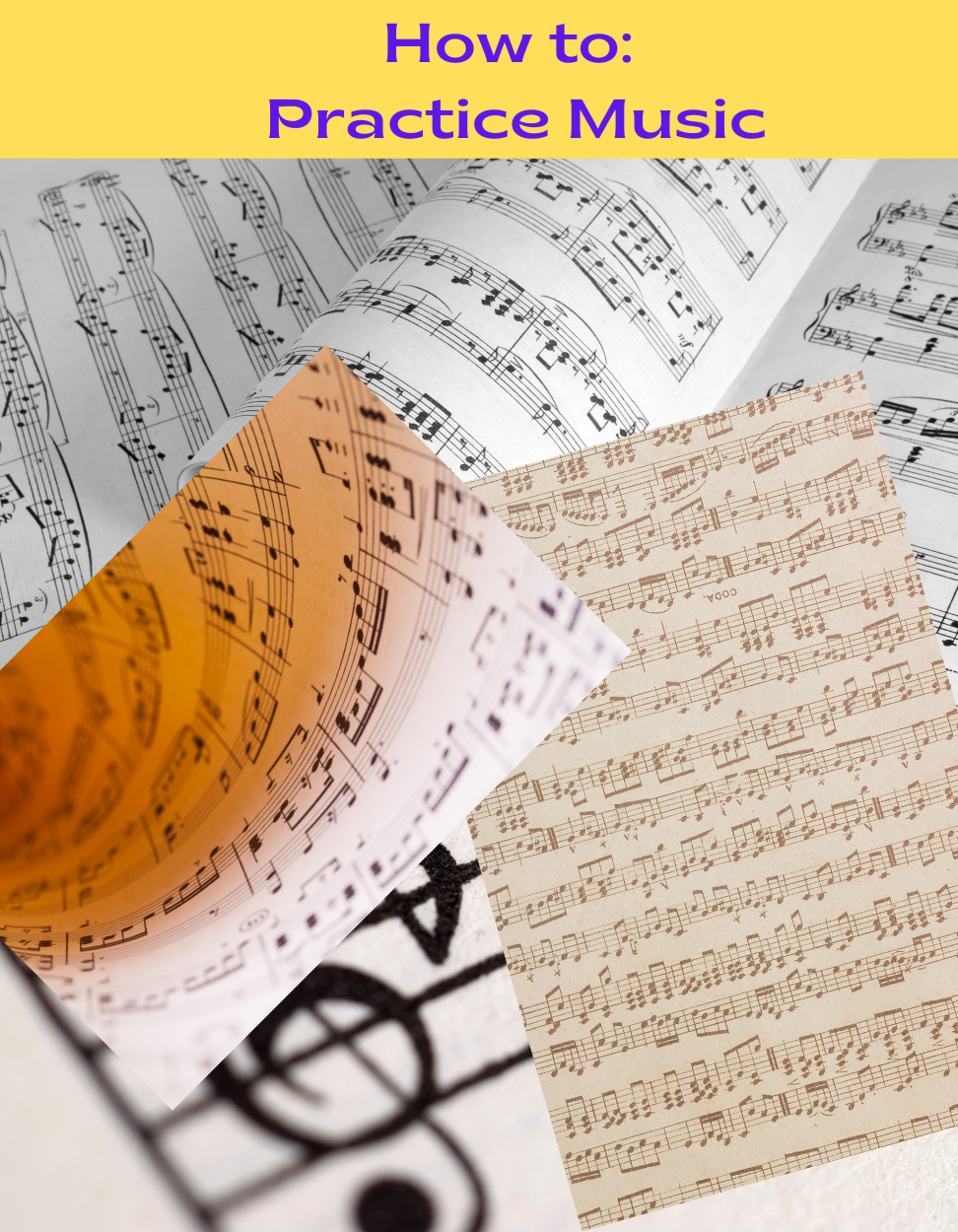
Historically, music has always been an integral part of human cultures worldwide, a universal language transcending boundaries and connecting hearts. From the classical symphonies of Mozart to the contemporary melodies of pop and rock music, from the soothing tunes of a piano to the vibrant strums of a guitar, music embodies diversity, beauty, and creativity.
Practicing music, undoubtedly, enriches our understanding of this fascinating medium. However, an effective practice routine is often what separates the musically proficient from the rest. Let’s now pave a path towards excellence.
How to Practice Music:
Step
1 - Set Clear Goals
Every musical journey begins with identifying your goals and aspirations.
Are you aiming for a professional music career?
Or are you an avid learner seeking personal enjoyment and enrichment?
Your goals shape your practice trajectory. Goals could range from mastering a particular technique, improving sight-reading abilities, expanding your repertoire, or even preparing for a performance. Remember, vague goals lead to vague results.
The key to effective goal setting is to make them specific, measurable, achievable, realistic, and timely (SMART)...
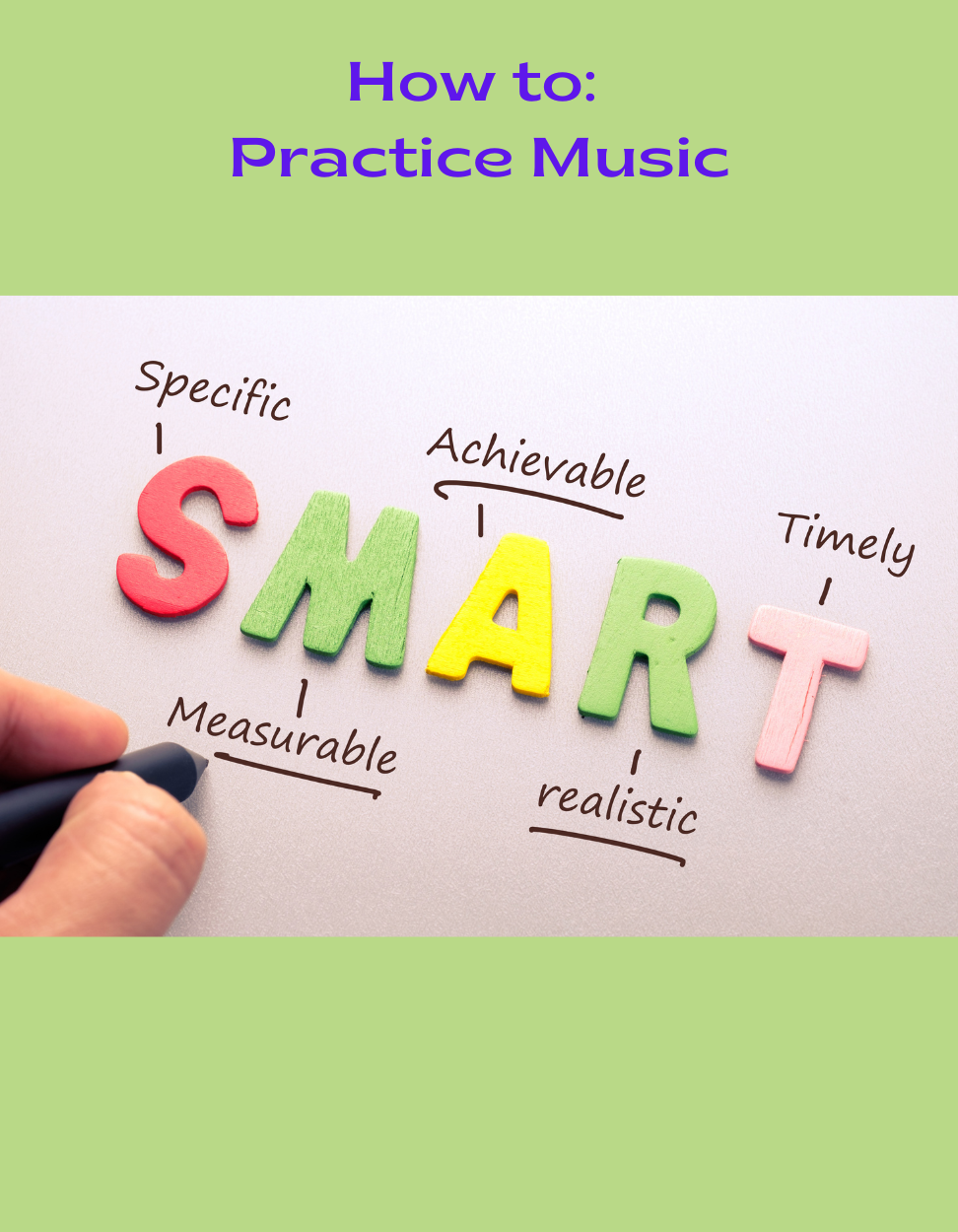
How to Practice Music:
Step 2 - Choose the Right Instrument
The diversity of musical instruments offers a buffet of options for aspiring musicians.
Considering your musical preference and comfort, choose an instrument that resonates with your personality and interests. The piano, guitar, violin, or more unconventional options like the didgeridoo or theremin, each lends a unique color to the musical spectrum.
Each instrument, however, presents its set of challenges, and understanding these can help carve an efficient practice regime.
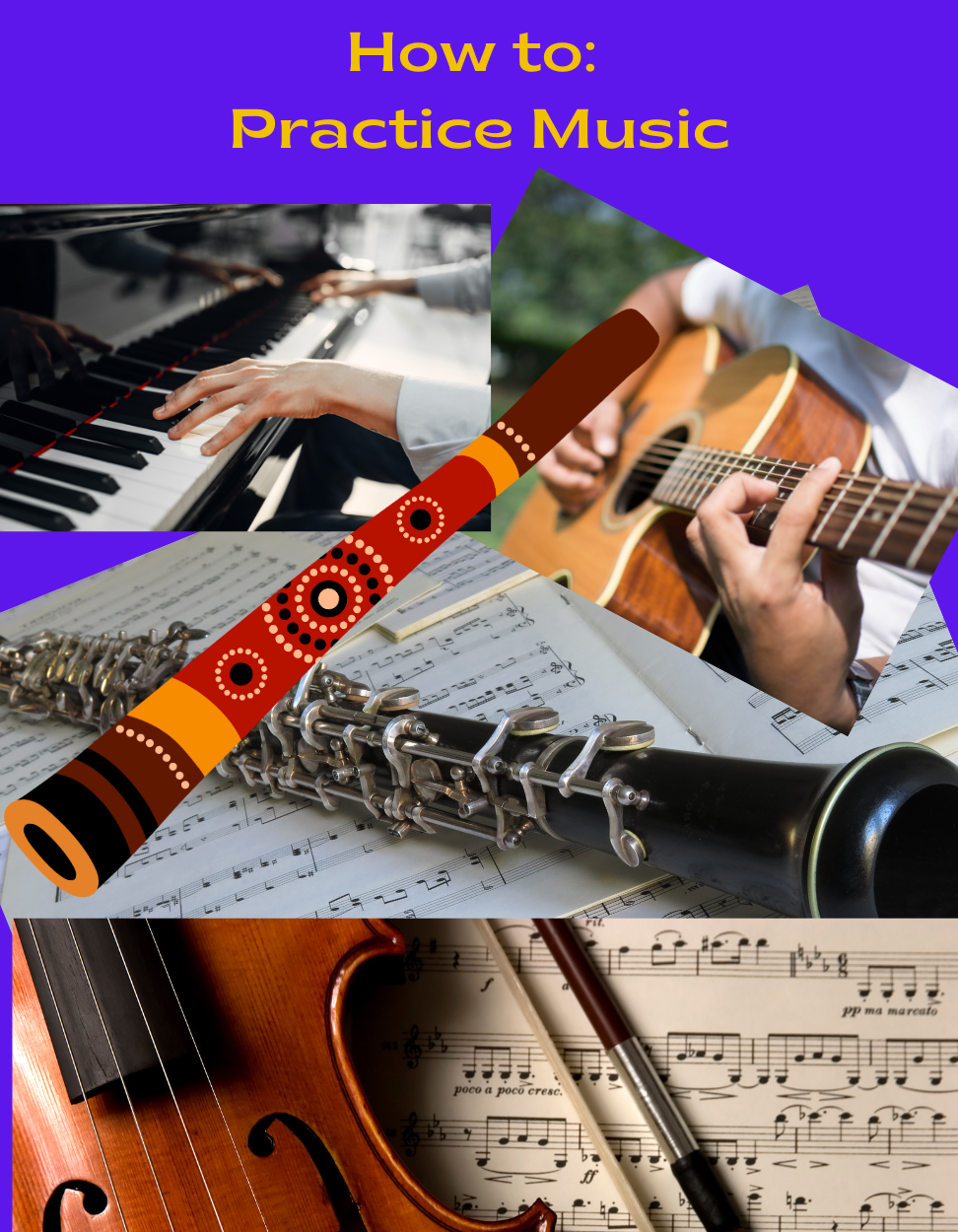
How to Practice Music:
Step 3 - Develop a Consistent Routine
Developing a practice routine is fundamentally about setting a fixed time for daily practice. Learning music requires time and patience, and consistent effort over time always pays off.
But remember, practice makes perfect only if you're practicing it right. So, that means that you should really be concentrating on "Perfect practice makes perfect" in my humble opinion.
Focus on your practice and eliminate distractions which will help you immeasurably concentrate on deliberate practice.
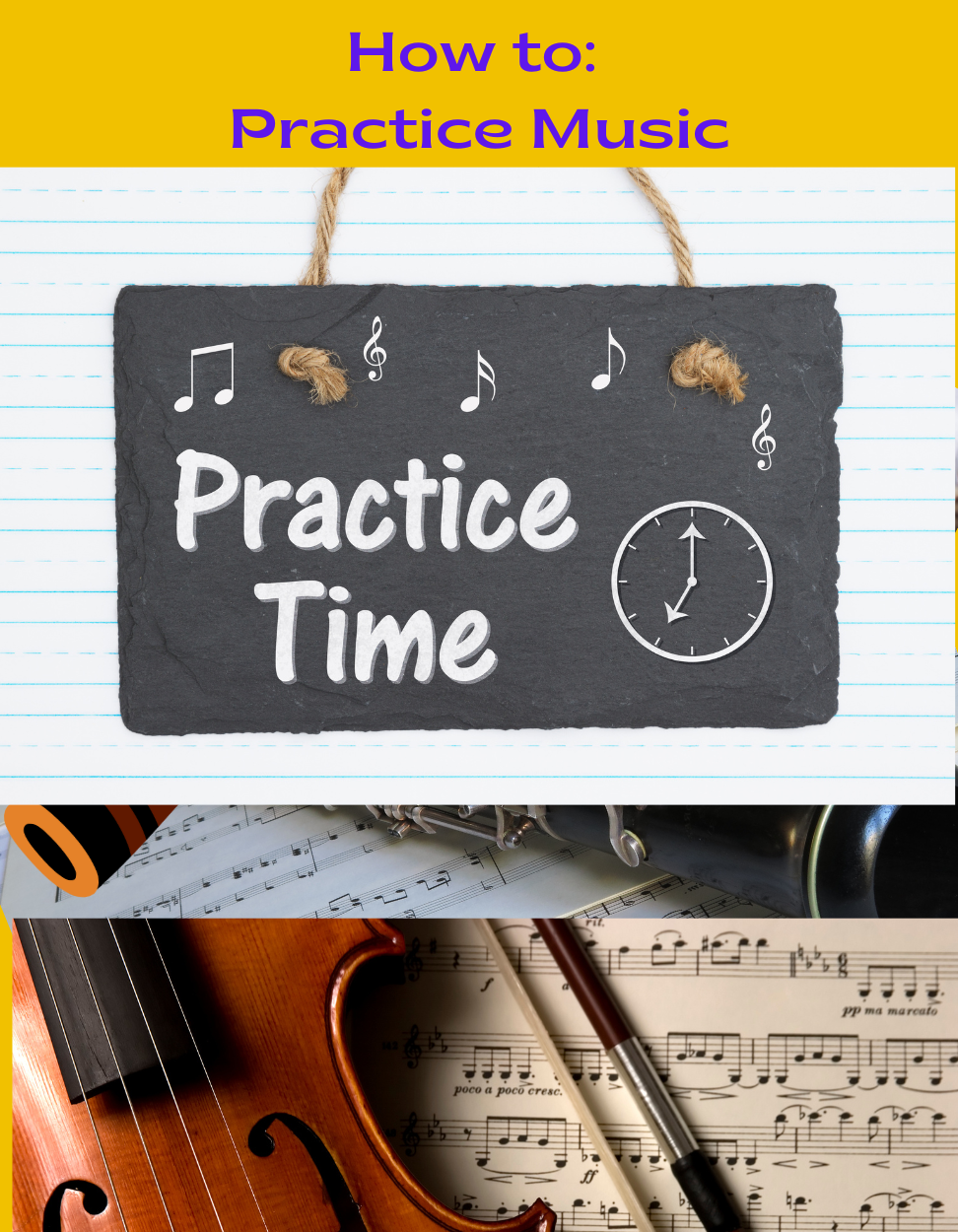
How to Practice Music:
Step
4 - Use Effective Practice Strategies
Quality practice involves several strategies that, when bundled together, can exponentially speed up your progress.
A widely embraced tactic involves employing the "divide and conquer" method. This technique entails dissecting intricate components into more compact, manageable segments and honing them individually.
By doing so, not only does it simplify the process of mastering intricate compositions, but it also enhances one's comprehension of the music. Another useful practice strategy is slow practice, which emphasizes accuracy over speed.
Playing slowly helps you play right!
Get it? Got it? GOOD!

How to Practice Music:
Step
5 - Embrace Mistakes
Mistakes are frequent companions on your musical journey, but they are not to be feared. Instead, they could be your best teachers. Facing difficulties when learning a new piece or technique?
Don’t give up!
Instead, see these challenges as an opportunity to learn and grow.
Persistence is key...
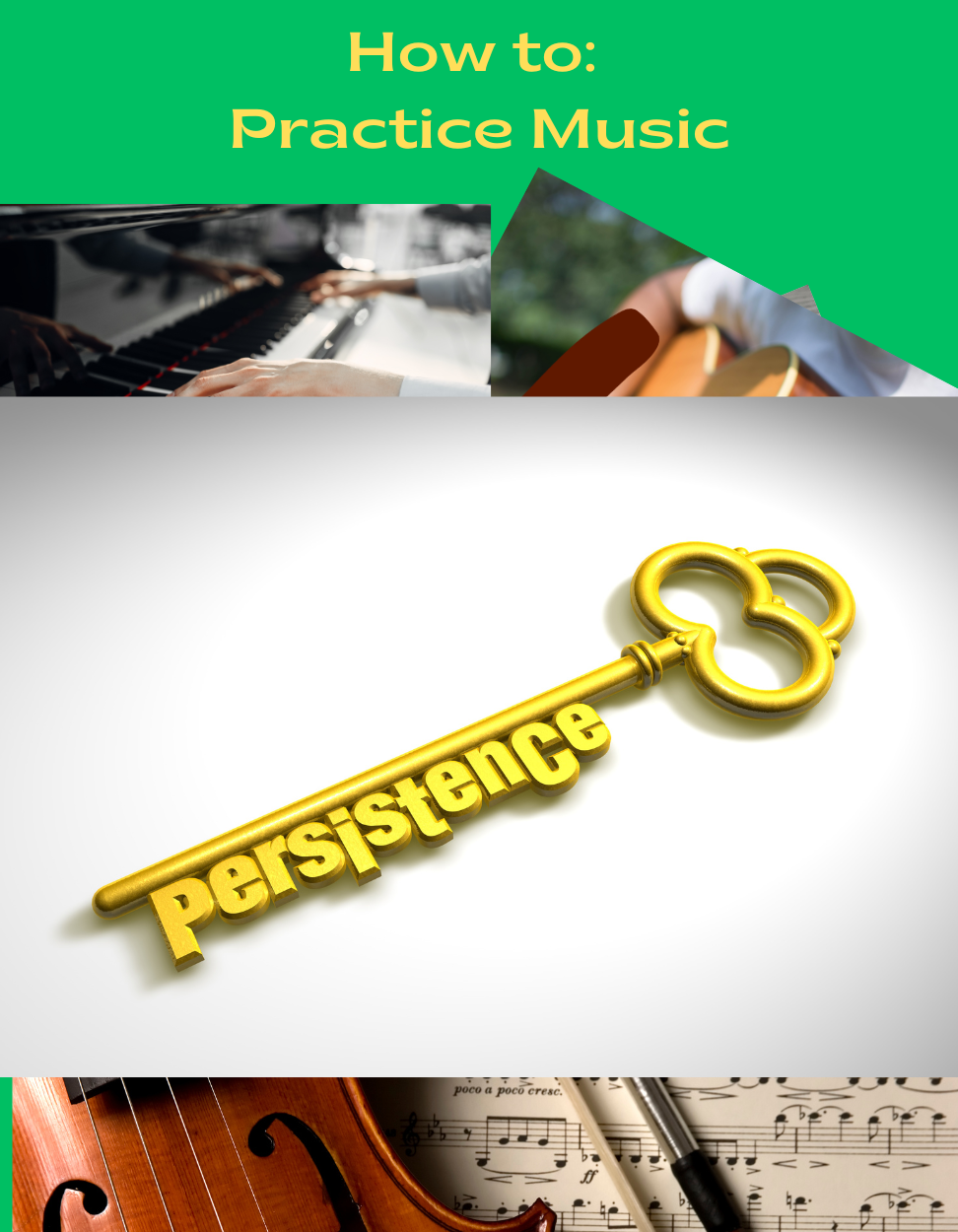
How to Practice Music:
Step
6 - Engage with a Music Community
Practicing music is not just an individual journey but also a social experience. Connect with other musicians and learners, join local music clubs or online forums, participate in music workshops and masterclasses. These platforms provide valuable feedback, diverse perspectives, inspiration, and a sense of belonging.
Learning music is a personal journey laced with a myriad of sentiments, including passion, determination, frustration, even self-criticism. Yet, we embrace these emotions– the joy of hitting the right notes, the anxiety before a performance, the curiosity for new techniques, the humility in learning from others, and the dedication to unending practice. This magical medley of sentiments fuels our musical journey invigorating us to overcome seemingly insurmountable challenges.
Achieving mastery of a musical instrument demands years of unwavering commitment and persistent effort, yet the voyage is immensely fulfilling. Remember that delving into the realm of music isn't a sprint; it's an expedition in which each stride you take, each note you produce, represents a distinct encounter to relish. Keep exploring, keep practicing, and keep the music alive!
Bear in mind that music transcends mere drills and routines; it serves as a conduit for our most profound emotions and life encounters.
Indeed...
"Music possesses the power to transform the world by touching and transforming individuals."
Your odyssey into the realm of music can commence this very day, and who can predict, you may ultimately contribute to reshaping the world!
So, let the power of music unfold, let the notes flow, and let your heart play the symphony of life!
There’s music in each one of us waiting to be discovered!
So, how will you start your musical journey today?
